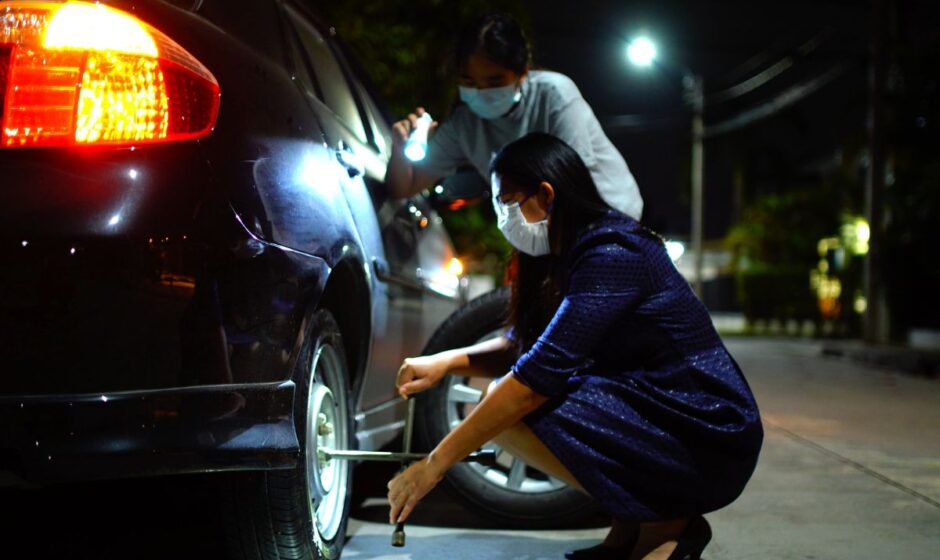When it comes to staying safe on UK roads, regular maintenance of your vehicle’s braking system and lights should never be overlooked. A thorough Brake and Light Inspection ensures that your car responds quickly in emergencies and remains visible to others — two key factors in avoiding accidents. At London Motor Sports, such inspections are a routine part of vehicle care, especially for drivers who prioritize both performance and safety.
From wear and tear in your braking components to blown bulbs or misaligned lights, small issues can quickly turn into major safety risks if left unchecked. This guide explores why timely inspections matter, what to look for, and how to stay compliant with UK road regulations.
The Role of Brake and Light Systems in Vehicle Safety
Brakes: Your First Line of Defence
The braking system is one of the most vital components of your vehicle. It must perform reliably at all times. If your brakes take longer to stop the car, you put yourself and others at serious risk.
Key Components to Check:
- Brake pads and discs
- Brake fluid levels
- ABS warning light
- Handbrake tension
Routine inspection helps catch issues early. Worn brake pads or low fluid can lead to complete brake failure. Regular checks help avoid costly repairs and dangerous breakdowns.
Lights: Visibility Means Safety
Your vehicle’s lighting system not only allows you to see but also to be seen. Whether it’s the middle of the night or a foggy morning, properly functioning lights reduce the risk of collisions.
Areas That Need Attention:
- Headlights (main beam and dipped beam)
- Brake lights
- Indicators
- Rear fog lights
Faulty lights can result in MOT failures and legal penalties. But more importantly, they can put your life at risk by reducing visibility and communication with other drivers.
Signs You Need a Brake and Light Inspection
Being alert to early signs of trouble can help prevent accidents. Here’s what you should look out for:
Warning Signs from Brakes:
- Squealing or grinding noises
- Vibration when braking
- Brake pedal feels soft or spongy
- Dashboard warning lights
Warning Signs from Lights:
- Dim or flickering headlights
- Uneven brightness
- One light not working
- Lights stay on or don’t come on at all
These issues can seem minor but often point to bigger problems. Timely Brake and Light Inspection ensures nothing is missed.
Why Regular Inspections Matter
Safety for You and Others
Faulty brakes and lights are leading contributors to road accidents in the UK. Regular checks reduce these risks and ensure safer driving conditions for everyone on the road.
Legal Compliance
The UK has strict roadworthiness standards. Regular inspections help ensure your vehicle meets MOT and legal requirements.
Cost Savings Over Time
Preventive maintenance is more affordable than major repairs. Spotting issues early can save you hundreds of pounds in repair costs.
How Often Should You Schedule an Inspection?
Experts recommend a Brake and Light Inspection every 6–12 months, depending on your driving habits. If you drive long distances or use your vehicle daily, schedule checks more frequently.
You should also arrange an inspection:
- Before long trips
- If your vehicle is older than 5 years
- After any accident or collision
Trust Professionals for the Job
While you can do basic checks at home, a comprehensive inspection should be carried out by certified professionals. They have the tools and knowledge to catch hidden problems.
At the end of the day, peace of mind comes from knowing your car is road-ready. Relying on experts also ensures that any parts needing replacement are genuine and correctly fitted.
Conclusion
Regular Brake and Light Inspection is not just good practice — it’s a smart, responsible step every UK driver should take. It protects your vehicle, your passengers, and everyone else on the road. Whether you’re preparing for an MOT or just want assurance that your car is in top shape, staying proactive makes all the difference.
For trusted inspection services that keep your car compliant and safe, consider London Motor Sports — your partner in vehicle care and performance.
Unlock expert insights for better car repairing
FAQs
Q: Can I fail an MOT due to a faulty brake light?
A: Yes, brake lights are essential. If they don’t function properly, your vehicle can fail the MOT test.
Q: How long does a brake and light inspection take?
A: On average, it takes between 30 to 60 minutes for a full inspection.
Q: Is a warning light the only sign of brake problems?
A: No, physical symptoms like squealing or vibration can also signal issues.
Q: Are LED lights inspected the same way as halogen?
A: Yes, the function and clarity of all lights are assessed regardless of type.



